Volkswagen moves towards hybrids
![]() 09/12 2024
09/12 2024
![]() 609
609
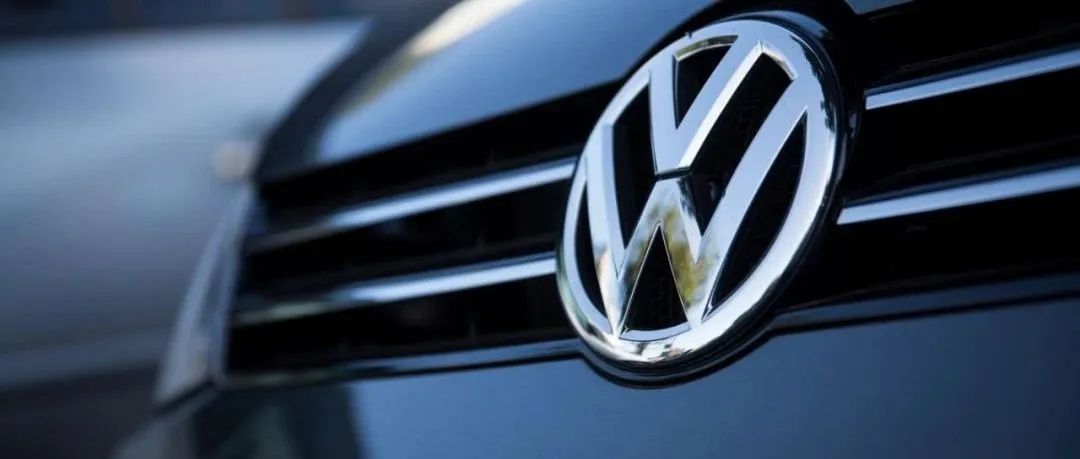
Introduction
Introduction
The best time to make an effort was ten years ago, and the next best time is now.
Recently, media reports claimed that FAW-Volkswagen is accelerating the development of a new generation of hybrid products based on information released by internal sources.
It is reported that the newly developed hybrid system is entirely independently developed by FAW-Volkswagen, but the source did not disclose the specific powertrain configuration. In terms of specific models, it is reported that there will be a total of three new models, including two SUV models.
According to the plan, FAW-Volkswagen's new generation of plug-in hybrid models will enter mass production at its Tianjin plant in 2026. Additionally, the source also revealed that the spun-off Jetta brand will launch a new A-segment pure electric sedan next year, followed by five pure electric models and a new generation of plug-in hybrid models.
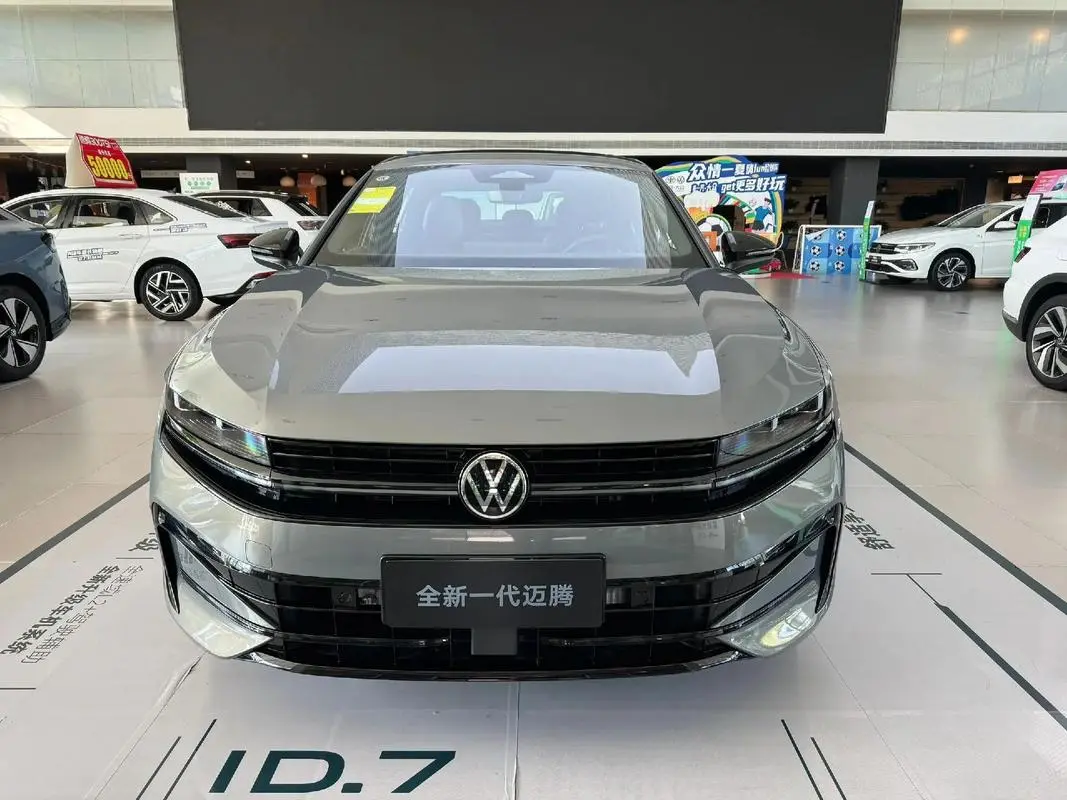
Image | Currently, the most competitive model in FAW-Volkswagen's lineup is the Magotan B9, the first pure gasoline vehicle to meet both smart cockpit and smart driving standards. However, this is far from enough.
This appears to be the new generation of hybrid products that Volkswagen China announced during a media briefing at the end of January this year, which will be launched in the Chinese market.
After gaining a general understanding of FAW-Volkswagen's development in the hybrid product line, new questions arise – is SAIC Volkswagen also advancing similar projects? Indeed, they are.
During the recently concluded Chengdu Auto Show, Fu Qiang, Executive Deputy General Manager of Sales and Marketing at SAIC Volkswagen, stated in an interview with the media that the company is currently advancing two hybrid products. These include an extended-range model for the B-segment market, while the A-segment market will see the deployment of a new generation of plug-in hybrid products.
"We are currently in the midst of intensive manufacturing, with some products' appearances already finalized. We are still discussing technical details and hope to bring them to market as soon as possible," said Fu Qiang.
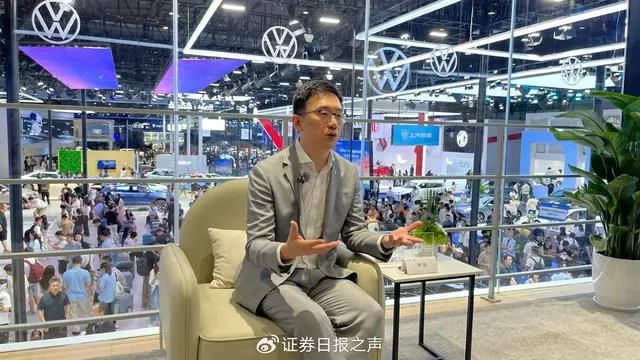
Image | During the Chengdu Auto Show, Fu Qiang from SAIC revealed some information, revealing that the new generation of plug-in hybrid models from North and South Volkswagen are taking different routes (Image from Securities Daily Weibo WeChat Official Account)
Beyond vehicle size and basic powertrain configurations, Fu Qiang did not disclose more specific information. However, combining the current information from both Volkswagen joint ventures, it is evident that they are not developing based on a single German blueprint as in the past. Instead, they may be operating independently, from architecture to systems.
On one hand, this suggests that Volkswagen Group does not have a readily available new-generation hybrid drive system that can be directly adopted. On the other hand, it appears to be a manifestation of "decentralization."
Based on the differences in positioning between the new generation of hybrid products from North and South Volkswagen, we have reason to believe that Volkswagen Group is attempting to fully decentralize its operations in China's joint ventures.
Signs of this "decentralization" can even be seen in SAIC Volkswagen's powertrain choices for its new generation of hybrid models.
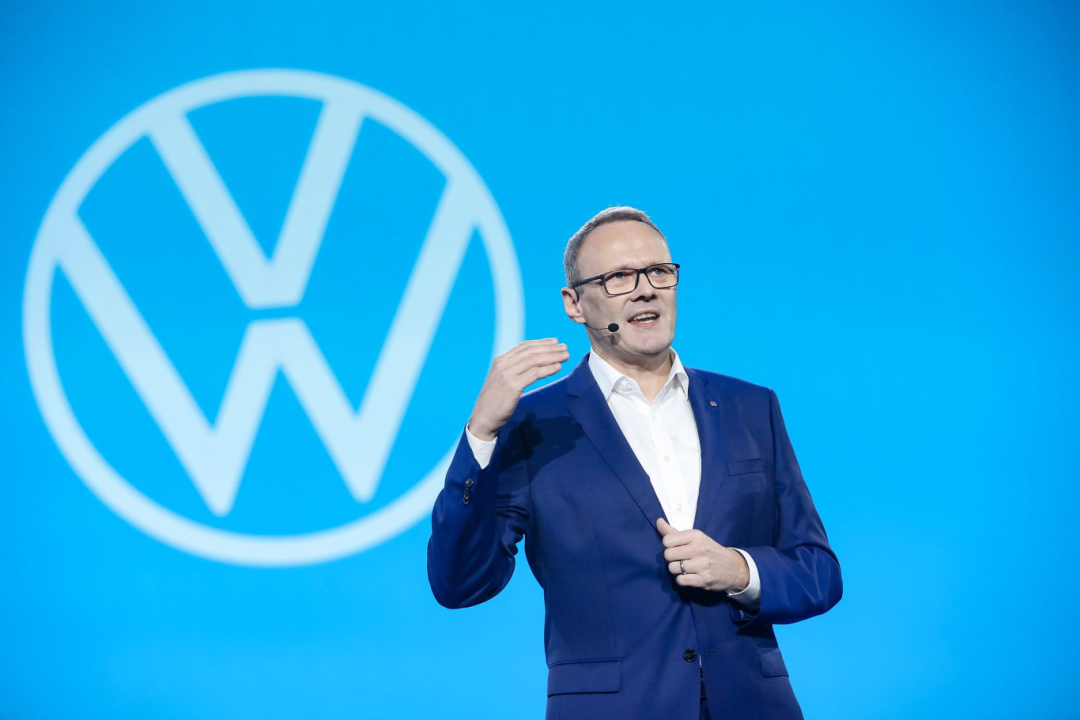
Image | Once upon a time, the extended-range solution was rejected by Dr. Stephan Wöllenstein, former CEO of Volkswagen China
Those who follow Volkswagen news may recall that Dr. Stephan Wöllenstein, former CEO of Volkswagen China, strongly rejected the extended-range solution in a media interview in September 2020: "From an individual vehicle perspective, extended-range electric vehicles have some value, but from a national and global perspective, it's nonsense and the worst solution!"
Following news of the planned closure of two factories in Germany late last month, Volkswagen CEO Oliver Blume, CFO Arno Antlitz, and other senior executives held an employee meeting at the Wolfsburg headquarters on September 4, addressing around 25,000 Volkswagen employees in attendance.
During the speech, Volkswagen executives acknowledged the group's current difficulties and reiterated the group's recent decision to close domestic factories to "cut costs and streamline operations."
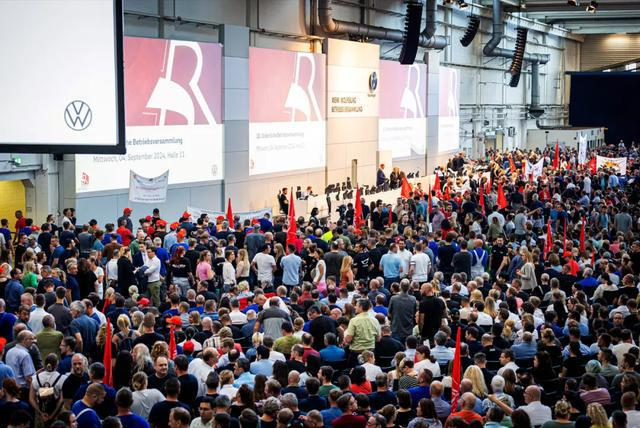
Image | Scene from the Volkswagen Wolfsburg headquarters briefing on September 4
"The market has not yet recovered," Antlitz stated bluntly, predicting that sales would not rebound in the short term and that Volkswagen's core brand would need "one or two years" to cut costs and adjust production volumes.
These remarks were met with boos from the audience, with many workers shouting, "We are Volkswagen, not you!" in protest against what they saw as management's attempt to rationalize layoffs.
From the employees' perspective, their stress response to fear of losing their jobs is entirely understandable. However, the facts remain that Volkswagen's situation and that of the entire German automotive industry are indeed dire.
On July 30, Recaro, a renowned German automotive seat manufacturer that has produced seats for prestigious automotive brands such as BMW, Mercedes-Benz, and Lamborghini, officially filed for bankruptcy. While not a Tier 1 supplier in the traditional sense, Recaro is a typical small yet highly specialized German company focused on a specific industry segment.
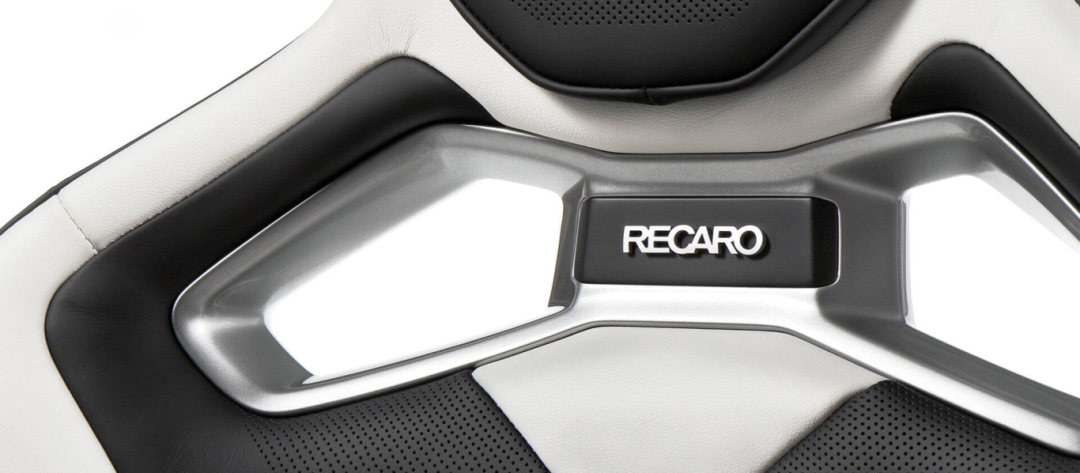
Image | Recaro suddenly announced bankruptcy on July 30, with difficulties in securing new customer orders and the loss of existing ones leading to the downfall of this specialized automotive seat manufacturer
In fact, throughout the first half of this year, a significant number of small yet specialized companies upstream of automakers in Germany have gone bankrupt. Among them, 20 companies with sales exceeding €10 million have gone under, a 60% increase from the same period last year.
The problems are not limited to upstream SMEs alone.
In January this year, Bosch Group announced plans to lay off around 1,200 employees by the end of 2026 (excluding China). In July, ZF Friedrichshafen AG announced plans to reduce up to 14,000 jobs in Germany by the end of 2028, representing approximately one-quarter of its German workforce.
In early August, Continental AG announced plans to spin off its automotive subsidiary, retaining only its profitable "Continental" tires and ContiTech subsidiary, which produces rubber and plastics materials.
The origins of this wave of bankruptcies can actually be traced back to the beginning of 2020, when the COVID-19 pandemic hit the world. It was then exacerbated by the disruption of cheap Russian energy supplies following the outbreak of the Russia-Ukraine conflict in March 2022, the backlash from sanctions against Russia, and the economic pressure caused by assistance to Ukraine.
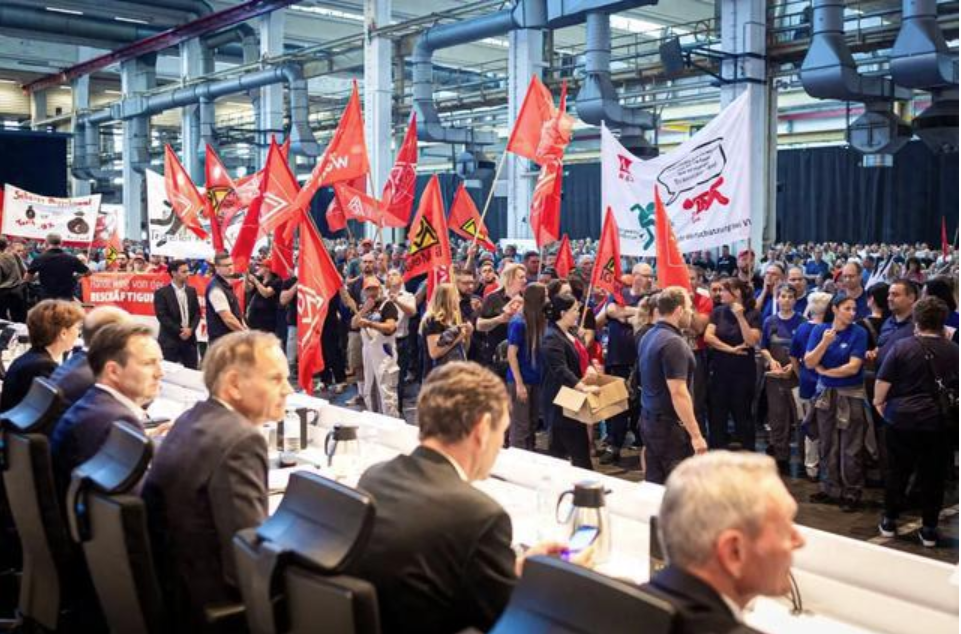
Image | No matter how strongly opposed, there will be no more large profits from the Chinese market to prop it up this time
For Volkswagen Group, however, the adverse macroeconomic environment is secondary. After all, the subprime mortgage crisis in 2008 led to an industry-wide downturn, and in 2015, Volkswagen paid a whopping $18 billion fine to the U.S. Environmental Protection Agency over the emissions scandal. Yet, the group emerged unscathed from both crises thanks to substantial profits from the Chinese market.
However, this time around, "there will be no more checks from China," as Group CEO Oliver Blume bluntly stated in his September 4 speech.
Anticipating potential difficulties in 2024, FAW-Volkswagen set a rather pragmatic annual sales target at the beginning of the year, ranging from 1.9 to 2 million vehicles. Considering last year's sales of 1.91 million new vehicles, this target could be described as extremely conservative.
However, when the first-half sales figures were released in July, FAW-Volkswagen's actual sales reached only 798,000 vehicles, falling short of expectations. For the entire January-July period, sales declined by 12.9% year-on-year.
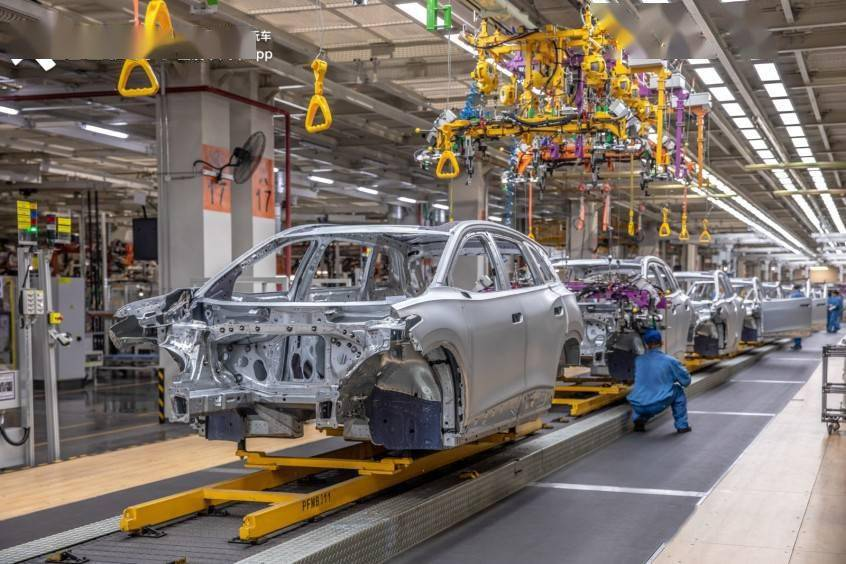
Image | Regardless, this year will be a challenging one for Volkswagen's joint ventures in China and the group itself, and next year could be even worse
Clearly, to achieve the sales target set at the beginning of the year, FAW-Volkswagen will need to exceed expectations in the remaining months. However, without high-performance products that meet current market demands, the only viable option appears to be discounting to boost sales. But this would further erode already slim profit margins due to price wars, making it highly undesirable.
In fact, FAW-Volkswagen is not alone in facing difficulties. In the first half of this year, Volkswagen brand sales in the Chinese market reached 1.345 million vehicles, a year-on-year decline of 7.4%, reducing its market share to 30.9%. Deliveries in the second quarter slid by 19% in the Chinese market, and profits from the market plummeted by 11.4%.
This is precisely why Volkswagen's CEO emphasized that the group cannot rely on profits from China to recover, and it is also the root cause behind North and South Volkswagen's respective initiatives to develop new-generation hybrid models. Ultimately, even Volkswagen, once atop domestic auto sales, is facing the brunt of this major shakeup, both domestically and globally.
In 2022, Volkswagen Group set an ambitious target – to increase its profit margin to 6.5% by 2026.
However, this "big goal" may need to be thoroughly revised alongside FAW-Volkswagen's modest sales target for this year. By the end of 2023, the group's profit margin stood at just 3.8%. In the first half of this year, facing even greater sales pressure in the Chinese market, the group further sacrificed margins for sales, driving the profit margin down to 2.3%.
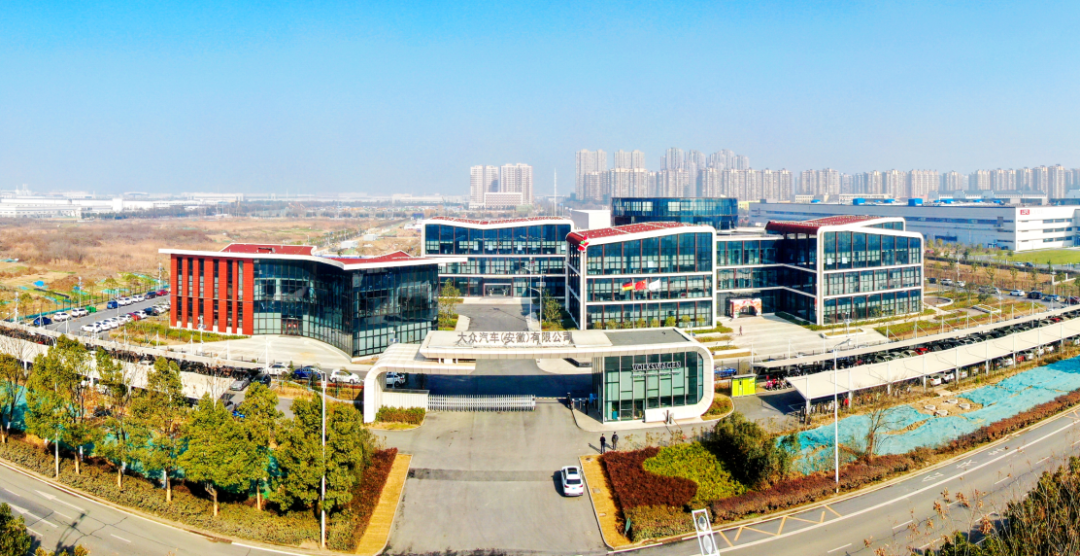
Image | Volkswagen (Anhui)
Undoubtedly, Volkswagen Group's current predicament necessitates aggressive "revenue generation" and "cost savings" efforts. Introducing new-generation plug-in hybrid models tailored to the Chinese market is the group's strategy for revenue generation, while domestic plant closures and layoffs are core cost-saving measures.
Even if these cost-saving measures, alongside the revenue-generating efforts of introducing new-generation hybrid systems and related models, progress as planned and receive positive market feedback, it will still take several years to significantly boost the group's overall profit levels. In summary, given the current situation, Volkswagen Group faces a long and arduous journey ahead.
As Zambian-British economist Dambisa Moyo famously said:
The best time to plant a tree was 10 years ago. The second best time is now.
Act decisively, and starting to act in 2024 is better than ignoring the problem. While 2025 may be a challenging year for Volkswagen Group as a whole, we can at least look forward to 2026 with hope.








